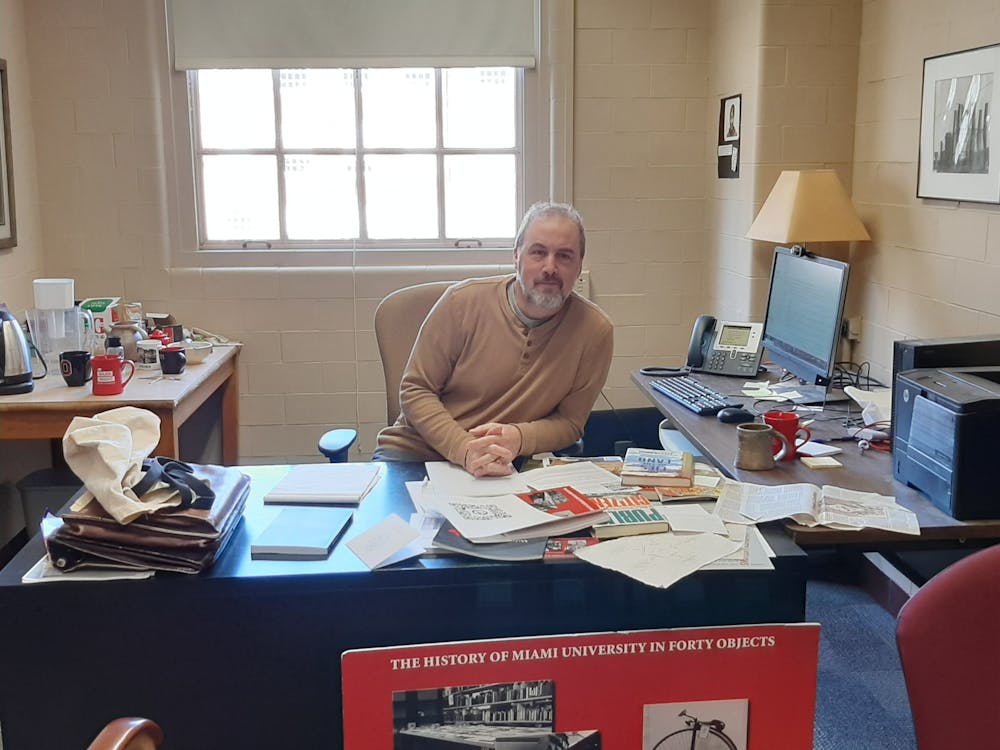Three miles from Miami University, a small country road cuts through verdant farmland. Behind the overgrown fences barring the path, the trail continues. It leads to a missile silo, a relic of the Cold War — and a stark reminder of the other forces at work in rural America.
The ideals of the “small town” and “rural life” in American culture have been deeply imprinted in the national consciousness for generations of Americans, where rural life is considered more virtuous than urban, where the bustle of city life can be left behind.
However, Steven Conn, a history professor at Miami, disagrees. To Conn, the four major forces influencing rural America are industrialization, corporations, militarization and, in recent years, suburbanization.
“What I discovered is that rural America is at the center of all of these things,” Conn said. “Not somehow on the edge or different from, but right in the center.”
Conn, who has always been curious about rural America, set off to reveal its connection with the traditionally urban forces of America and its fight to keep up in his recent book “The Lies of the Land,” published in October 2023.
Conn said he wanted to write his book to change America’s conversation about this issue.
“Their conversation about rural America basically goes around in a circle: ‘It’s in crisis — no, it’s alright — no, it’s in crisis,’” Conn said. “As a historian, it struck me how long we’ve been having this conversation. So clearly something is wrong, so I wanted to find what conversation we should be having, which, in turn, might help change our policies for the better.”
Conn has had a long history of publication in his tenure at Miami. The head of the history department, Wietse de Boer, said that Conn’s contributions have been a great boon to not only the history department but also the nation’s political consciousness.
“Professor Conn is very productive as a scholar, and also as a teacher, and talking about his most recent book, it’s been received very well so far,” de Boer said. “I think it’s important that the voice of professional historians is heard when it comes to debates of national and sometimes even global significance. And so that is true for the book that Dr. Conn just published.”
Conn said he feels the recognition is because the book was timely and falls in line with the impressive quality of work the entire department produces. Conn’s book was recently acknowledged in an essay by the The New Yorker, but he says part of that was luck, and his colleagues are also producing first-rate work.
Beyond the media, Conn has received high praise from Miami’s students, and not just for his book. Casey Olthaus taught with Conn over the summer in a program that Conn runs called Student Citizens, which helps students from economically marginalized high schools prepare for college.
“He is as interesting a professor as he is a writer,” Olthaus said.
Enjoy what you're reading?
Signup for our newsletter
Mikhail Svirin, a former student of Conn’s, praised his help in and out of the classroom.
“My experience with Dr. Conn as a student and a colleague has only been positive,” Svirin said. “Besides having great discussions with him, I was writing a sample article for my Ph.D. application and Dr. Conn was one of the professors I contacted, and he immediately responded to my questions about fixing and discussed it in person with me.”
Conn offers his perspective on his experiences at Miami, concerning both the big deeds and little details of teaching and learning.
“Since I arrived at Miami, I’ve loved teaching its students, especially when they decide to do big projects,” Conn said. “But the advice I would say I always find myself giving is this: relax, college is about so much more than simply getting a job. Study what excites you.”




